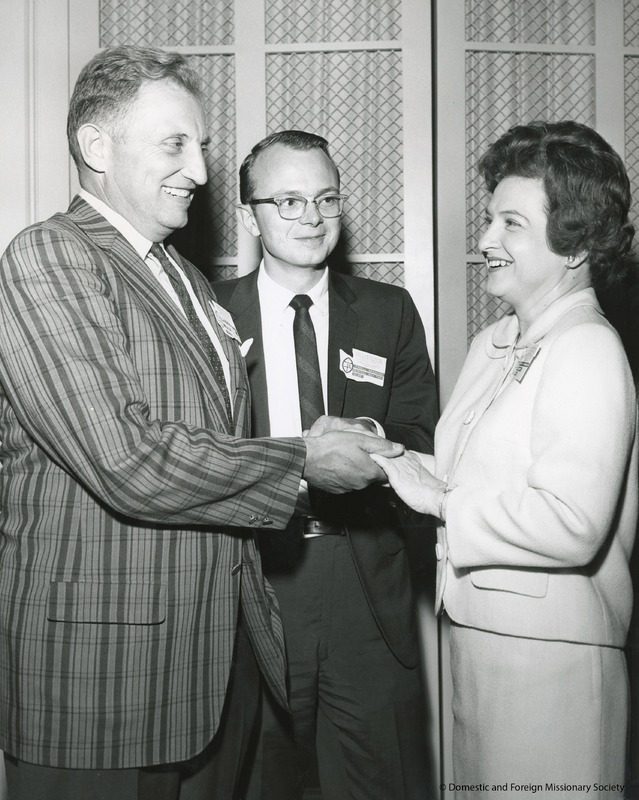Lueta Bailey
Lueta Bailey was born in LaGrange, Georgia, into a Methodist family. She attended LaGrange College, where she majored in history. After college, her first job was teaching at the First Methodist Church in Griffin, Georgia, where she was also president of the local church women’s organization.
Bailey was confirmed in The Episcopal Church as an adult; she found it easier to adopt her husband’s denomination than to divide her time between the Episcopal and Methodist churches. However, when she first joined St. George’s Church in Griffin, she found the Sunday School program curriculum was teaching beliefs around race with which she disagreed. After she pulled her son out of the program with the intention of returning to the Methodist Church, the leadership of St. George’s instead offered her the position of Sunday School teacher. The church became racially integrated in the mid-1960s and successfully pushed for the integration of two lunch counters in the area despite opposition from the Ku Klux Klan.
Bailey was active with Episcopal women’s organizations, first the Woman’s Auxiliary and then the Episcopal Church Women, at the local, diocesan, and national levels. In 1955, Bailey was nominated as a delegate to the Woman’s Auxiliary Triennial Meeting in Honolulu, Hawai’i. While there, she heard a debate at the concurrent meeting of the General Convention regarding the seating of women deputies. She became so angry at what she heard that she walked out.
Twelve years later, in 1967, Bailey was the Presiding Officer of the Triennial Meeting when the General Convention’s House of Deputies voted on a resolution allowing women to serve as deputies. As the Triennial Meeting was in session, she sent someone to observe the proceedings of the House of Deputies and report back, so that she might know the results of the vote before the official communication. Additionally, she prepared two speeches for the House of Deputies, one expressing happiness and the other disappointment, and wore a red silk suit so “if they voted ‘no,’ [she] was dressed properly for the martyr and if they voted ‘yes,’ [she] was dressed properly for the celebration.” The vote was “yes.” Bailey was among the first women seated as deputies during the 1970 General Convention.
In addition to her service as a deputy, Bailey served nine years on the Executive Council and was also the first woman to serve as chair of the Program and Budget Committee. Lueta Bailey died on March 26, 2017.

